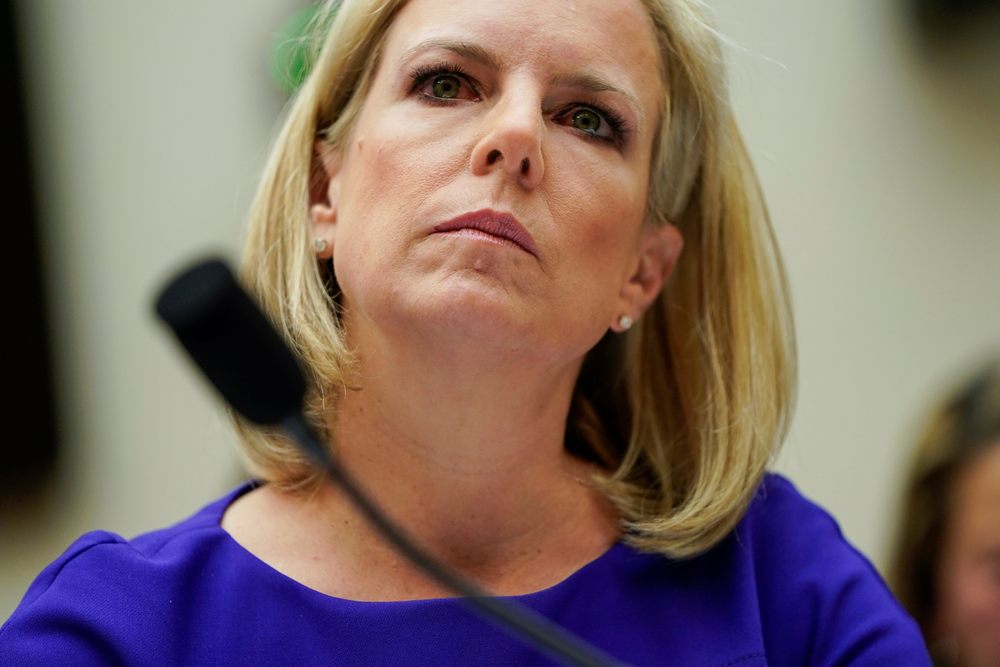WASHINGTON: An eight-year-old Guatemalan boy who died in US custody this week had trekked to the border with his father from a rural northwestern village, Guatemala’s government said yesterday, following thousands of others who have made the area a hot spot of migration.
Felipe Gomez Alonzo and his father, Agustin, 47, came from the municipality of Nenton in Huehuetenango province, Guatemalan Foreign Ministry spokeswoman Marta Larra said.
Gomez was the second child to die this month in US custody after crossing from Mexico, following the death in early December of seven-year-old Jakelin Caal, a girl also from Guatemala.
US Department of Homeland Security Secretary Kirstjen Nielsen announced policy changes yesterday aimed at preventing future deaths of children in custody.
All children in Border Patrol custody have been given a “thorough medical screening,” and moving forward all children will receive “a more thorough hands on assessment” as soon as possible after being apprehended, whether or not the adult with them asks for one, Nielsen said in a statement.
Gomez’s parents, who speak a Maya language called Chuj and little Spanish, have requested an autopsy be done as quickly as possible so their son’s body can be repatriated to Guatemala, Larra said. The results are expected in about a week, she added.
The US Customs and Border Protection (CBP) agency has not released an official cause of death.
Most families in Nenton are of indigenous origin and subsist on corn and bean farming, as well as money sent back from relatives working in the United States and Mexico, according to a local government report.
Huehuetenango sends the highest number of migrants abroad from Guatemala every year, Larra said.
Nielsen said that the death of migrant children in US custody is rare, noting that in the fiscal year ended on September 30, six migrants died in CBP custody, none of whom were children.
“In fact, it has been more than a decade since CBP has had a child pass away in their custody,” she said. “It is now clear that migrants, particularly children, are increasingly facing medical challenges and harboring illness caused by their long and dangerous journey.”
Nielsen said she would travel to the border later this week to observe the medical screenings and conditions at Border Patrol stations.
She placed some blame for the risks faced by migrant children on their families. “Smugglers, traffickers, and their own parents put these minors at risk by embarking on the dangerous and arduous journey north,” Nielsen said.
Gomez and his father were detained on Dec 18 in El Paso, Texas, for illegally entering the country, the agency said.
They were given hot food, snacks, juice and water, and two days later, were transferred to the El Paso Border Patrol Station, CBP said. On Dec 23, they were transferred to the Alamogordo Border Patrol Station in New Mexico.
On the morning of Dec 24, an agent noticed Gomez “was coughing and appeared to have glossy eyes,” CBP said, and the father and son were transferred to a nearby hospital.
The boy was found to have a fever and cold and was released with a prescription for an antibiotic and Ibuprofen. That evening, Gomez started vomiting, and his father declined medical help because his son had been feeling better, CBP said.
A few hours later, Gomez again began feeling nauseous and was taken back to the hospital, where he died just before midnight. CBP previously said he had died early on Tuesday.
US House of Representatives Democratic leader Nancy Pelosi called yesterday for the DHS internal watchdog, the Inspector General’s office, to investigate Gomez’s death. The watchdog is already looking into Caal’s death.
Democratic Representative Zoe Lofgren, who starting next month will chair the House subcommittee that deals with immigration and border security issues, yesterday pledged to conduct oversight about the conditions in CBP’s holding facilities for migrants. — Reuters










